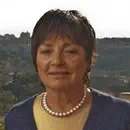
Hebrew University recently shocked Israelis who grew up on the stories of Eliezer ben Yehuda's revival of spoken Hebrew after 2000 years, by announcing that it may begin teaching its courses in English.
They should have sent some board members to see Israel's "Raise Your Spirits Theater Troupe"'s most recent musical play – "Judge! Song of Deborah," which had the actresses speaking in Hebrew for the first time after 17 years of filled-to-capacity musicals in English performed mostly by Anglos.
This writer attended an Emunah Jerusalem sponsored performance at the Jerusalem Shalva Center – after all, what play could be more fitting for a Religious Zionist women's organization known for encouraging religious women to be leaders?
This play was a sellout in 2010 in English as well, and written, as are all the biblically-inspired works performed by the troupe, after much research into traditional biblical commentary, and advice from Torah scholars and historians.
That attention to history leads to a wonderful song in the play about Canaanite technology in the Iron Age – tongue-in-cheek, and with a pointed hint at today's news which the audience did not miss, the writers have Sisera boasting about the state-of-the-art metal weaponry he has and with which he will destroy those annoying Jews. A song about the judges whose ranks Deborah joins – sort of - has definitely current undertones.
The wry sense of humor and witty text audiences have grown to love at "Raise Your Spirits" performances, no matter how dramatic their themes, includes singing "Sisera, ra, ra, ra " (ra is evil in Hebrew) and having Yael's friends dressed as goodie goodie tulle-skirted girlies. Sisera's mothers' friends, in contrast, look like middle-aged would-be sirens in bright colored long wigs and black dresses.
Humor notwithstanding, the play faithfully follows the dramatic story in Judges Chapter 4-5 and each scene is preceded by a verse chanted hauntingly in soprano to the tune used by Ashkenazic shuls for the weekly haftorah reading.
Appearing before women only, this halakha-observant group of talented producers, actresses, singers, dancers, and technical staff started their initiative in 2001 by putting on plays to raise Gush Etzion women's spirits during the Intifada and get their minds onto something positive– a wonderful idea that worked during those horrible days of shootings on the roads leading to Gush Etzion. These were the dark days when several women driving in broad daylight were among those murdered in drive by shootings by Arab terrorists. (Only Kafka could have imagined a situation where my endocrinologist daughter-in-law donned a bullet proof vest and headgear for the drive from Efrat to the Jerusalem hospital where she treated tens of Arab patients – and Jews - daily.)
Why Deborah? Because a women's troupe, both its adult and youth ensemble performers, and its women-only audience appreciate the many messages for women in that story – and the original play, written by Toby Klein Greenwald and Yael Valier with music by Mitch Clyman brings them all to the fore. Deborah is shown as the prophetess, judge, poetess, military leader and strategist she was, while she and Yael, the other female heroine in the story, are juxtaposed with Canaanite general Sisera's malevolent mother.
Yael herself is portrayed as a gentle, feminine woman taught from childhood to be "a good girl" and not act out of the box, who then shows more courage when push comes to shove than Barak, the insipid male commander at Deborah's side.
Deborah herself is no power hungry feminist, no women's marches and fiery speeches against misogyny for her. She is chosen by G-d, accepted by the people, and does the job, ending with the Song of Deborah, her inspiring ode praising G-d's help in achieving victory over the enemies of the Jews.
Speaking of Jews, there are other non-women oriented messages in the story, one of which is, that being the leader of the Jewish people is probably the most thankless and difficult job on earth. It has always been that way. Ask Moses. Or King David. Or Deborah, for that matter.
Having a leader chosen by Hashem as in biblical times, should have made it easier, no?, No, it didn't. We find the usual complaints and ingratitude – plus insubordination and even downright rebellion against Moses and David.
Deborah was a selfless and dedicated stateswoman, acting on the commands of G-d, but although victory in the end was hers, there is the incontrovertible fact that most of the tribes did not join the forces she and Barak led fighting the Canaanites. Much later, King Saul succeeded in getting the tribes to act as a unit, but he had to threaten them first.
Despite all this, people are vying for the honor of leading stiff-necked Israel as elections are upon us, and unfortunately, values, platforms on important issues and proven accomplishments in foreign and domestic affairs are not really the basis of most of the campaigns – instead, we have animosity and verbal sparring, slander, one-upmanship, media-mongering and indictments. Yet like in Devorah's, David's and every other Jewish leader's period of rule, there are crucial and divisive issues to be decided all the time in this beleaguered country whose very existence is a miracle.
Deborah sings "Shine Your light" at the end of this timely play – and may G-d shine His light on us as well as we approach another difficult period in our ancient-modern country's history. May we merit the forty years of quiet the Book of Judges records as the summary of Deborah's inspired leadership. Or maybe, for starters, just one.







(Director: Rachel Keshet, Music direction: Elisheva Naomi Savir; Choreography: Hadassah Baranes and Emunah Bracha Sanrocco; Hebrew by Michal Yechieli Coppenhagen; additional translation adaptations to the stage: Elisheva Naomi Savir and Aviva Karpel)

